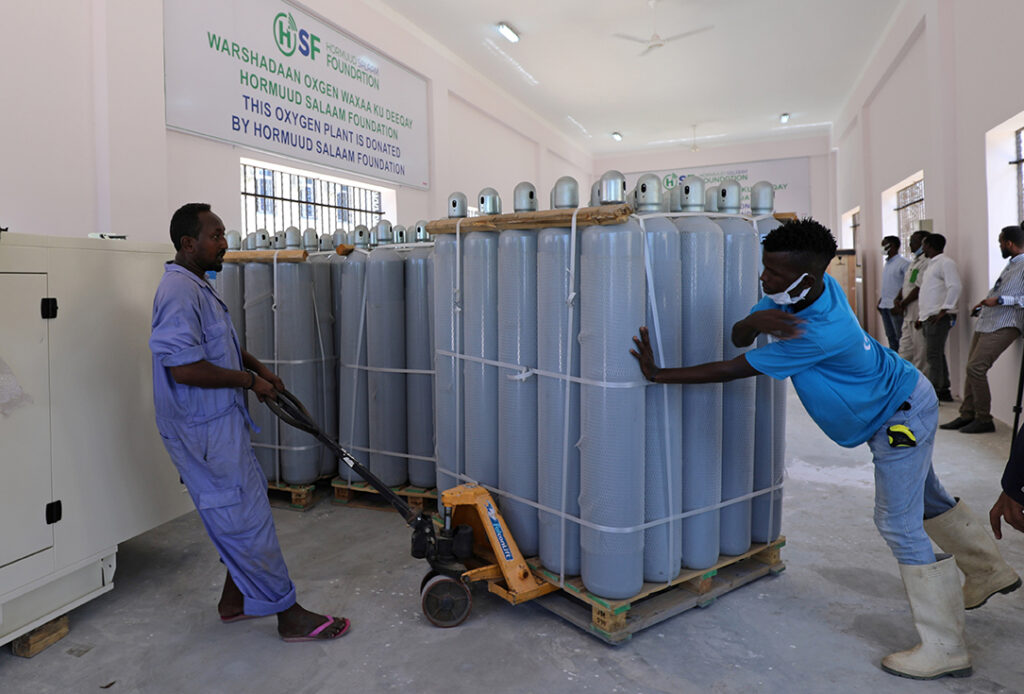ADF STAFF
Facing severe oxygen shortages in late September, Somalia opened its first oxygen plant at a hospital in Mogadishu.
The plant is expected to produce 1,000 cylinders of oxygen per day. It was installed at Banadir Maternity and Children Hospital, which was partially destroyed in July by al-Shabaab terrorists. Hormuud Salaam Foundation, a Somali nonprofit organization, purchased the plant for $325,000, which also funded the hospital’s renovations.
Somalia has one of Africa’s highest death rates from COVID-19, and medical oxygen is required to treat those who are critically ill with the virus.
“When we have people in the hospitals for COVID, the most important component is oxygen,” Somali Health Minister Fawziya Abikar told The Associated Press. “During the last months, we had a shortage of oxygen in all the city.”
Abikar said another oxygen plant is expected to be donated soon.
“One cylinder of oxygen usually costs around $50 in Somalia but can reach up to $400 or $500 [at private hospitals] because of the shortage,” Abdullahi Nur Osman, chief executive officer of the Hormuud foundation, told Reuters, adding that oxygen will be distributed to public hospitals in Mogadishu for free.
A senior doctor told Amnesty International that many COVID-19 patients have died due to insufficient oxygen supplies.
“We had to use a single nasal oxygen cannula [tube] for multiple patients,” said the doctor, who spoke on the condition of anonymity. “There was a day we had four elderly men in one ward; they all needed oxygen, but they all died within 10 minutes. I can still remember their faces; I am sad we were unable to get oxygen to save their lives.”
As of October 11, Somalia had reported nearly 1,200 deaths in more than 21,200 COVID-19 cases, according to the Africa Centres for Disease Control and Prevention, but experts say the numbers could be much higher due to inadequate testing and unreported deaths.
An Amnesty International report found that during Somalia’s first wave of COVID-19, one hospital in Mogadishu was forced to handle all coronavirus cases in the south-central region.
“Testing was very limited,” Somali Chief Medical Officer Dr. Mohamed Mohamud Ali told Amnesty International. “Only those who managed to get to health facilities and were tested are included in the official government data. The figure is just a tip of the iceberg — many more were infected and died at home.”
Dr. Abdullahi Sheikdon Dini recognized his country’s lack of diagnostic capabilities in the months before the pandemic took hold. Dini and four partners compiled $1 million to finance Medipark Diagnostics, a laboratory that opened in January 2020.
Until Medipark Diagnostics opened, Somali doctors had to wait weeks for test results. Now, hospitals in Mogadishu can get answers in hours or days. For the first half of 2020, Medipark was the only private lab testing for COVID-19, but Dini’s staff has trained other scientists in the procedure, expanding the country’s ability to respond to the disease.

